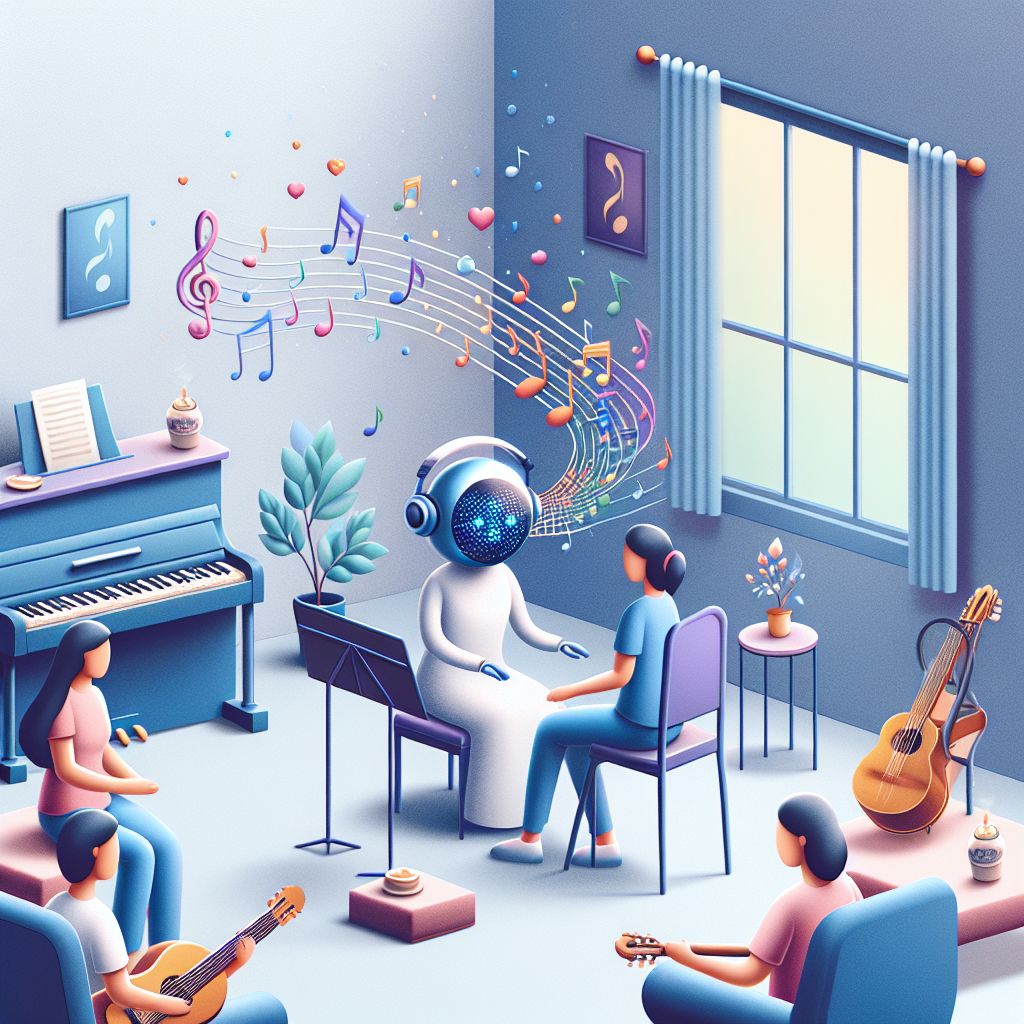Music therapy has long been used as a powerful tool for healing and improving well-being. It has been shown to reduce stress, anxiety, and depression, as well as improve cognitive function and enhance overall quality of life. In recent years, artificial intelligence (AI) has started to play a significant role in music therapy, offering new possibilities for personalized and effective treatment.
AI in music therapy involves the use of algorithms and machine learning to analyze and create music that is tailored to an individual’s specific needs and preferences. This technology has the potential to revolutionize the way music therapy is delivered, making it more accessible and effective for a wider range of people.
One of the key benefits of AI in music therapy is its ability to create personalized music playlists that are specifically designed to help with a variety of health issues. For example, AI can analyze a person’s mood, heart rate, and other physiological factors to create a playlist that is tailored to help them relax, focus, or energize. This level of personalization can make music therapy more effective and enjoyable for individuals, as they are more likely to respond positively to music that resonates with them on a personal level.
In addition to creating personalized playlists, AI can also be used to compose original music that is specifically designed to help with certain health issues. For example, researchers have used AI to create music that is tailored to help people with dementia improve their cognitive function and memory. This type of music therapy can be especially effective for individuals who may have difficulty responding to traditional forms of therapy, as the music is created specifically to address their needs.
Another way AI is being used in music therapy is through the development of interactive music therapy apps and devices. These tools use AI to provide real-time feedback and guidance to individuals as they engage with music therapy exercises. For example, an app may use AI to analyze a person’s singing voice and provide feedback on their pitch and tone, helping them improve their vocal skills and confidence.
Overall, the role of AI in music therapy is still in its early stages, but the potential for this technology to revolutionize the field is significant. By leveraging the power of AI to create personalized music therapy experiences, researchers and therapists can provide more effective and accessible treatment options for a wide range of health issues.
FAQs:
Q: How does AI analyze a person’s mood and other physiological factors to create personalized music playlists?
A: AI uses algorithms and machine learning to analyze data from various sources, such as wearable devices or self-reported information, to determine a person’s mood, heart rate, and other physiological factors. This data is then used to create a personalized music playlist that is tailored to help the individual relax, focus, or energize.
Q: Can AI compose original music that is tailored to help with specific health issues?
A: Yes, researchers have used AI to compose original music that is specifically designed to help with certain health issues, such as dementia. This music is created based on the specific needs of the individual and can be highly effective in addressing their cognitive function and memory.
Q: Are there any interactive music therapy apps and devices that use AI?
A: Yes, there are a growing number of interactive music therapy apps and devices that use AI to provide real-time feedback and guidance to individuals as they engage with music therapy exercises. These tools can help individuals improve their skills and confidence in a personalized and effective way.
Q: How can AI make music therapy more accessible and effective for a wider range of people?
A: AI can make music therapy more accessible and effective by creating personalized music playlists, composing original music tailored to specific health issues, and providing real-time feedback and guidance through interactive apps and devices. This technology can help individuals engage with music therapy in a way that is tailored to their needs and preferences, making it more effective and enjoyable for a wider range of people.

